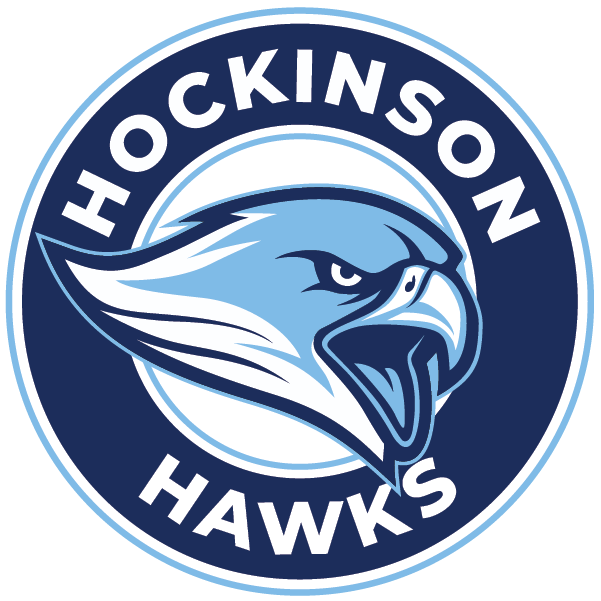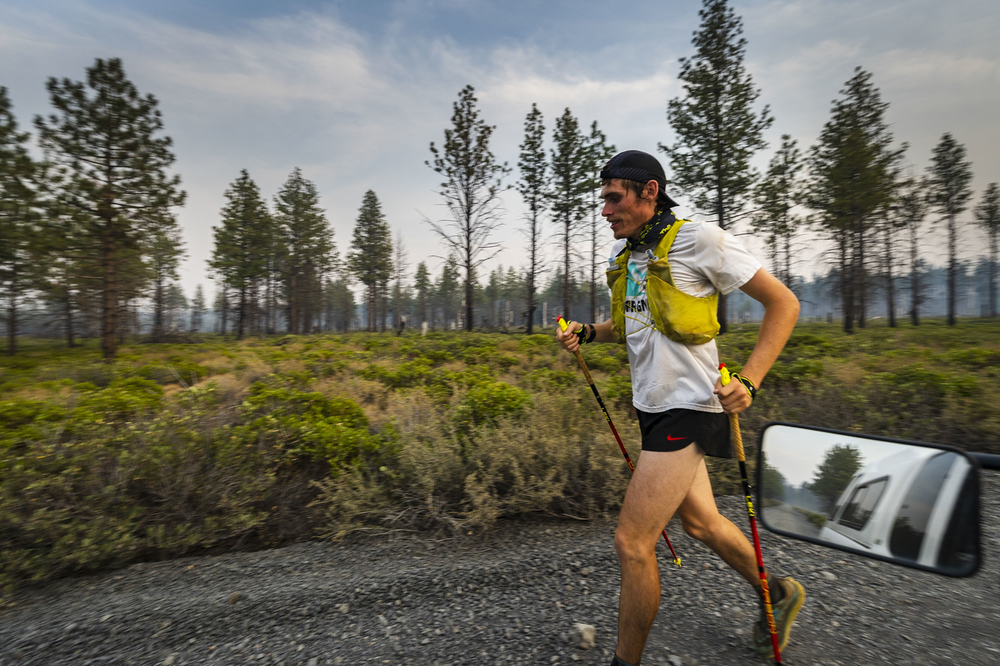As a coach, Kyle Peterson often encourages his athletes to challenge themselves by trying new events and improving their best times. On August 23, Peterson, who is a HHS graduate and Assistant Coach with the HHS Cross Country and Track programs, walked his talk - or more accurately ran and climbed his talk - by competing in the Cascades 100 ultra marathon event in Central Oregon. And Peterson not only competed, he finished 2nd among a field of over 300 male and female participants.
Before we learn how he did it, let's first take a look at the Cascades 100 trail race itself. The "100" represents the course length: 100 miles. The course begins in Bend, Oregon and finishes in Sisters, Oregon. While the distance is intimidating, so is the difficulty. The trail race has 10,700 ft of gain and 11,200 of loss which, as organizers point out, is largely in the first 2/3 of the race making this "easier-on-paper race much harder than expected!" Adding to the difficulty were temperatures in the low 90s and poor air quality due to nearby wildfires.
So, how did he do it?
As you'd expect of any top athlete, he set goals. "My number one goal was to finish and not succumb to an injury or heat exhaustion. My second goal was to come in under 21 hours," said Peterson. His third goal, Peterson admitted, was a stretch goal: "To finish in the Top 3."
Also, he practiced. Peterson had previously run a marathon and a 62-mile ultramarathon and knew that he would have to dial up his training. He said it was not unusual for him to run long distances lasting "3 or 4 hours" a training session leading up to the event. The conditioning paid off. "There were a lot of sustained uphill and downhill portions in the course. I was able to handle both by maintaining a consistent pace," Peterson said. Still, he said, he had to make sure he took special measures in the race. Although he was rarely hungry, he forced himself to eat throughout the day. Also, he loaded his backpack full of ice, replenishing it aid stations about every two hours.
But Peterson said that the psychological challenges of the race were more demanding than the physical challenges. It was the up-and-down nature of the course that drew on Peterson's tenacity. "[The race] was definitely one of those 'one foot in front of the other' experiences. I knew I could never stop. Persevering through the hard spots required a lot of self talk. I had to dig deep," said Peterson.
All of this explains the sense of relief and satisfaction when he saw his finish time: 19 hours, 47 minutes, 21 seconds. After all, this is an event that gives each entrant 32 hours, 1 minute and 18 seconds to finish.
While Peterson is proud of his accomplishment and acknowledged that his 2nd place finish gives him credibility with his athletes, he really values the insights he gained from pushing himself to his limits. It is those lessons that he tries to share athletes and relate to their experiences. Although the length of a high school cross country course (3.2 miles) is 33 times shorter than the Cascades 100, many of the lessons are the same, says Peterson. "In every race, there is a point where a runner wants to give up. What's important is to recognize those moments and having a strategy to push through them," said Peterson. "Preparation is critical, but encouragement is also an important factor. You can't underestimate the power of a teammate or fan cheering you on. In some cases, the encouragement comes from other runners and when that happens it really hits home and bonds people together," he added.
Kyle and his mom, Head Cross Country Coach Melissa Peterson, also recognize the value of diverse race experiences and seeking out top-tier competition. For these reasons they have entered the HHS Cross Country Team in the Clovis Invitational in Clovis, CA in early October. "They will be competing against some of the best runners in the country at that event and it will be something they will never forget," said Peterson.

